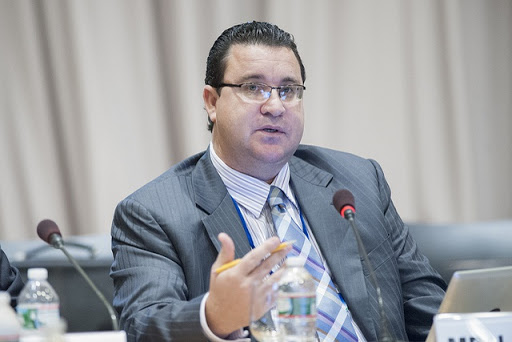Country Director for the World Bank, Pierre Laporte, has advised government on the need to quickly resume fiscal consolidation efforts in order to sustain the country’s macroeconomic stability.
While commending government for the swift response in mitigating the impacts of the pandemic on the economy, Mr Laporte in addition to the suggested fiscal consolidation measures, averred the exceptional financing needs of government brought about by the pandemic must be met through reforms targeted at increasing government revenues.
“This crisis has put an end to Ghana’s impressive 7 per cent average growth rate record from 2017 to 2019 and resulted in the slowdown of growth in 2020 to an estimated 0.9 per cent. The crisis has also led to the suspension of the fiscal rule and substantially drove up financing needs,” said Mr Laporte.
“To meet these exceptional financing needs and maintain macroeconomic stability, government will need to resume fiscal consolidation efforts as soon as possible, with particular focus on reforms to increase public revenue. Authorities should consider reforms to widen the tax base, strengthen tax administration, reduce tax exemptions, plug revenue loopholes and leakages, and combat tax evasion,” he added.
Government in the 2021 Budget Statement revealed its plans to employ strict public expenditure for this year while enhancing revenue mobilization efforts to rake in some Ghs 72.4 billion (16.7% of GDP).
Government’s public debt as at end-December 2020 amounted to Ghs 291 billion representing 74.4 per cent of Gross Domestic Product (GDP).
Fiscal deficit for the period under review also amounted to 11.4 per cent of GDP excluding energy and financial sector bailout costs.
Mr Laporte made the above assertions while delivering his remarks during the virtual launch of the World Bank’s 5th Ghana Economic Update report.
The report titled “Structural Transformation and Labor Market Performance: Challenges and Opportunities,” considers the need to recover from the COVID-19
pandemic and ensure that economic growth and a well-functioning labour market, supply sufficient quality jobs to Ghanaians.
The policy options discussed in the report provide options for transforming Ghana’s economy in a way that will stimulate stronger, sustained growth and produces gainful, productive, and inclusive private employment.








